Post
A catch
Save a catch to start your fishing logbook. You will be able to to share it with the community if yo want!
A fishing trip
Post an ad to go fishing with other fishermen
Save a catch to start your fishing logbook. You will be able to to share it with the community if yo want!
Post an ad to go fishing with other fishermen
Share a thought, a question with the community
My favorite cities
×Join our 654 fishermen in Grayingham in Lincolnshire. The fishing forecast is currently 4. The most caught fishes here are the minnow fish, the river lamprey, the vendace fish and the rudd fish. Come try the most famous fishing techniques like the « walking the dog » technique to lead a lure, the bolognese fishing, the stalking fishing technique or trolling for mackerel.
Our fishing forecast of Grayingham indicates the best time to go fishing in this city.
The Minnow fish
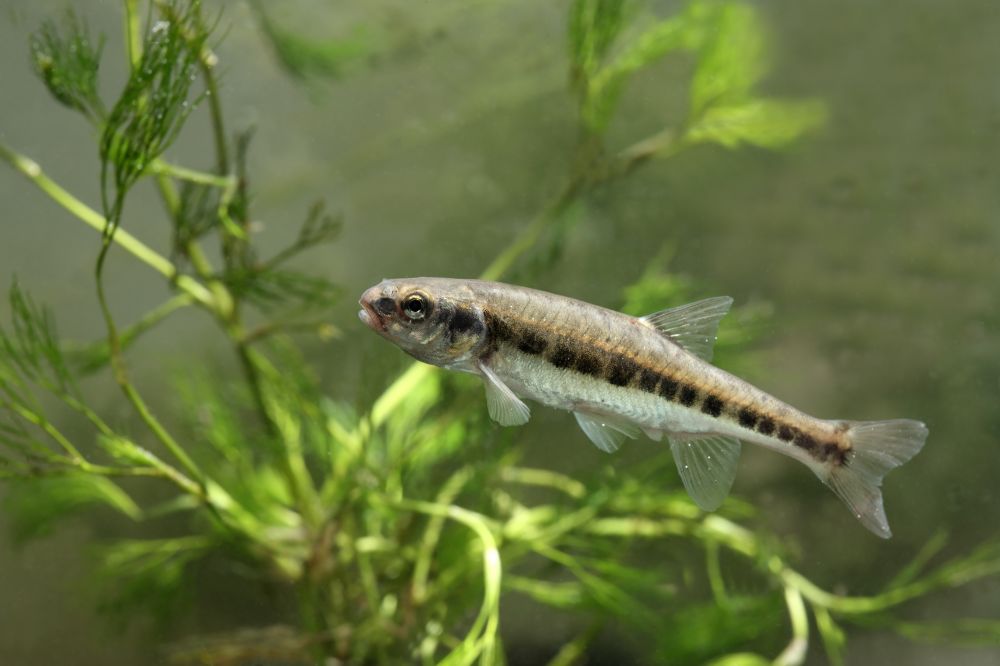
The Minnow fish belongs to the Cyprinidae family. The minnow is a small fish with a length of 4 to 10 cm (maximum 14 cm) and a weight of 3 to 10 g (rarely more than 13 g). Life expectancy is 4 to 5 years (maximum 11 years). Reproduction takes place from April to July or from one region to another. Depending on size, the female lays between 200 and 1000 eggs. It can be fished all year round. It moves in benches. It is often accompanied by trout of the same size and young salmon. The body is shaped like a spindle. The head has a rounded snout, the mouth is terminal (the upper jaw slightly protrudes from the lower jaw). The back is dark green, the upper part of the flanks is light brown with large black-brown spots (sometimes linked to form stripes), while the lower part is yellowish green with silvery highlights, the belly is creamy whitish (in spawning season, it is copper red in males). The lateral line usually only extends to half of the body. The caudal peduncle is compressed laterally. The fins are rounded and transparent. The caudal fin is clearly indented; the ridge is quite high.
The Minnow fish is a famous fish you can catch in Grayingham.The River Lamprey
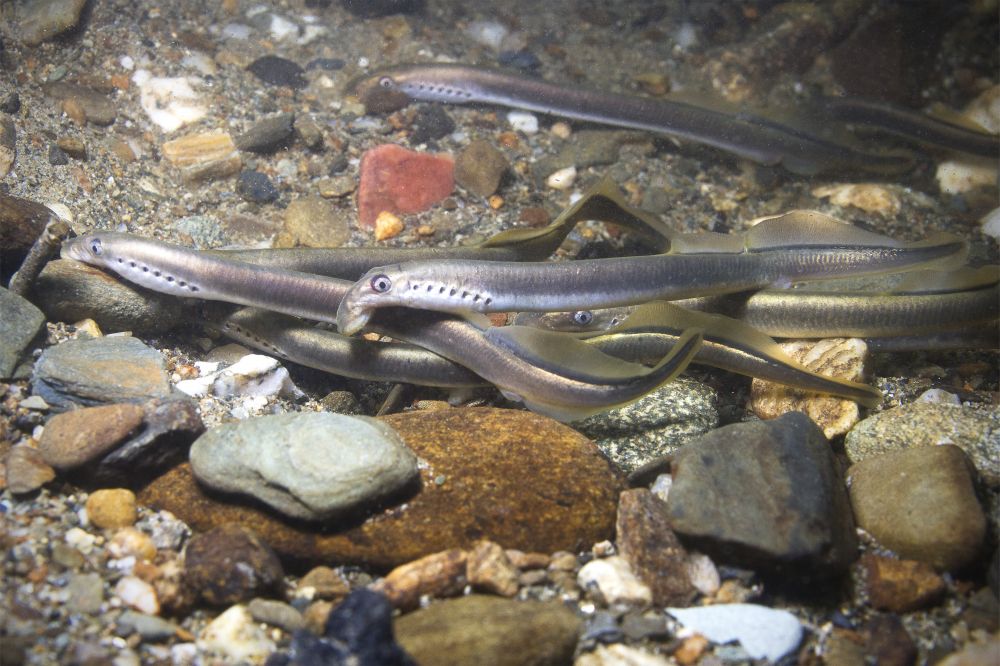
The River Lamprey belongs to the Petromyzontidae family. It measures 18 to 50 cm (average 25 to 35 cm) and weighs 30 to 150 g (average 50 to 70 g). Females are larger than males. The maximum age of the river lamprey is estimated at 10 years. Reproduction takes place between January and May. The number of eggs varies between 4,000 and 40,000. It is caught from January to May. A vertebrate with a cartilaginous skeleton and no jaws, the river lamprey has an anguilliform body, without scales and covered with toxic mucus. Its back is bluish to brownish green. Its sides are greyish, tanned, without mottling. The belly is white. The eyes are very well developed but remain primitive. A single nostril is located between the two eyes. In adults, the circular mouth in the lower position is a suction cup adapted to suction. The buccal disc and tongue are covered with only a few horny denticles, but most of them are strong and acute. On each side of the head, this species has seven pairs of circular gill holes (spiracules). The river lamprey has three fins: one caudal and two dorsal. The two dorsal fins are separated by a small interval, the second being triangular in shape, longer and higher than the first. The larvae are light-colored and its mouth is horseshoe-shaped. His eyes remain hidden under the skin. So it’s blind.
The River Lamprey is a famous fish you can catch in Grayingham.The Vendace fish
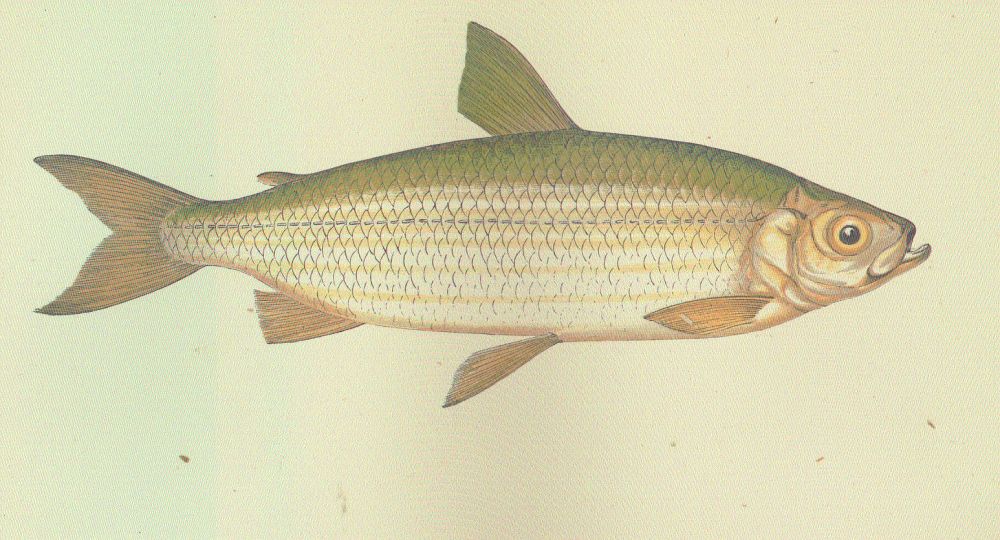
The vendace fish belongs to the Salmonidae family. Its average size is 45 cm and its weight is 1 kg. The oldest specimens observed were 10 years old. It breeds from October to December. The female lays 30,000 eggs per kg of weight. It is fished from March to December. The vendace is a small, slender and streamlined fish that is very easy to confuse with a bleak, a small lavaret whitefish or a peled whitefish. Unlike the bleak, the vendace is a member of the Salmonidae family, which is why it has a fat fin. It differs from the lavaret and peled whitefish by its much longer lower jaw. In the lavaret whitefish, the upper jaw is longer and in the peled whitefish the jaws are of the same length. It is silvery on the sides, with a white belly and a brown-green, grey-blue or blue-green back.
The Vendace fish is a famous fish you can catch in Grayingham.The Rudd fish
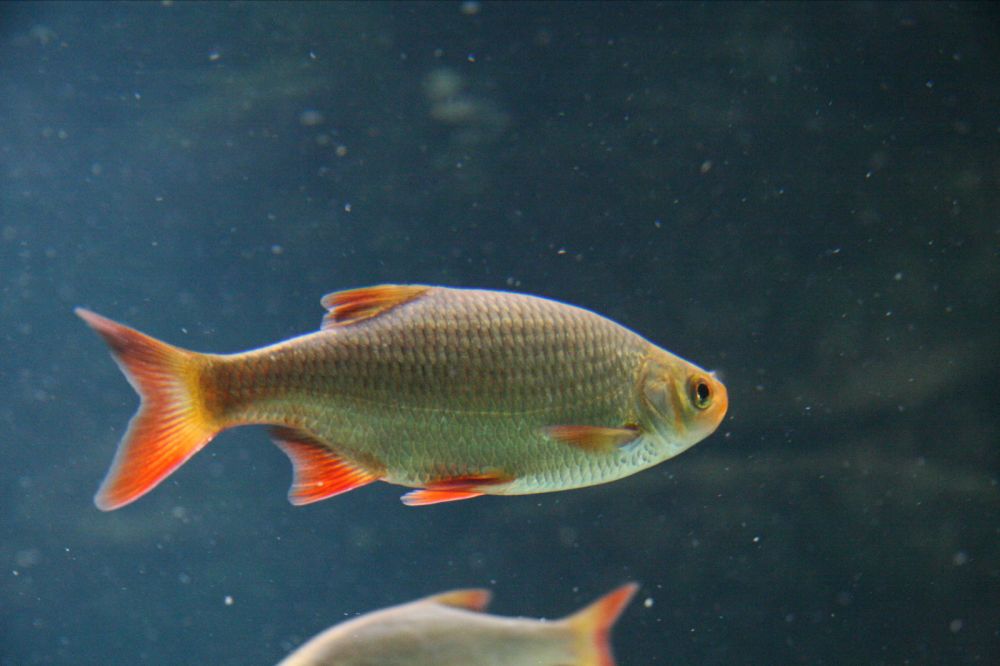
The Rudd fish belongs to the Cyprinidae family. The current size of the rudd fish is 15 to 30 cm for a weight of 0.5 to 1 kg. It can reach nearly 51 cm in height and weigh 2 kg. The rudd fish can live about 17 years. Egg laying is split and takes place from April to June. The female lays 100,000 to 200,000 eggs. Fishing for rudd is allowed all year round. It is easily identifiable by the diver: the silvery appearance of its body. A closer look at the position of the dorsal and ventral fins will then make the difference between the two species. If the ventral fins are placed further forward than the dorsal fin, it is the ratchet. The mouth, small, terminal, opens obliquely upwards. The back of the rattlesnake is brownish green, the sides and belly are silvery. The iris of the eyes is yellow with golden reflections. Dorsal, anal and pelvic fins are bright red in color.
The Rudd fish is a famous fish you can catch in Grayingham.The Silver Bream
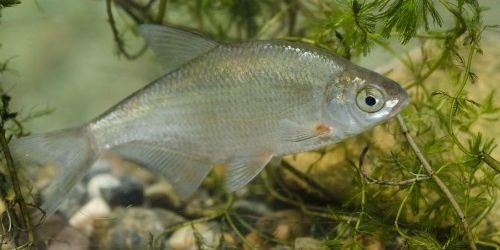
The Silver bream belongs to the Cyprinidae family. The usual size of the Silver bream is 20 to 30 cm and weighs about 200 g. The largest specimens can reach 35 cm. The life span of the Silver bream is about 10 years and it breeds from May to July. The female lays 20,000 to 60,000 eggs. It can be fished all year round. The Silver bream (Blicca bjoerkna) has a high, laterally flattened body, with a bushy back, characteristic of breams and accentuating with age. The head of this bream is small in relation to the size of its body but its eye is quite large, compared to its common cousin. Its snout is short and its mouth is oblique downwards, a characteristic common to fish seeking food on the bottom. The mouth is protractile (it unfolds forward) and free of barbells, surrounded by thick lips. The Silver bream is characterized by a long anal fin with between 22 and 26 rays, although shorter than the fresh water bream (26 to 30 rays). The dorsal fin of the Silver bream is short and high. The caudal fin is strongly indented. The Silver bream has a silvery coloring on the sides and belly, with a dark greyish-green or olive-colored back. The pelvic, pectoral and anal fins have an orange-red color. This last coloring can affect the whole stomach in older Silver breams.
The Silver Bream is a famous fish you can catch in Grayingham.Our fishing forecast of Grayingham indicates the best time to go fishing in this city.
Our fishing forecast of Grayingham indicates the best time to go fishing in this city.
Our fishing forecast of Grayingham indicates the best time to go fishing in this city.
